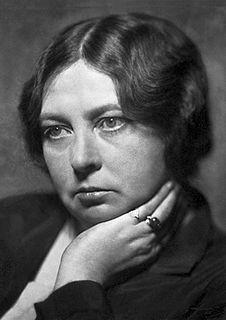A Quote by Gilbert K. Chesterton
Atheism is indeed the most daring of all dogmas . . . for it is the assertion of a universal negative.
Related Quotes
Let me tell you that atheism has never painted a masterpiece. Atheism has never dispelled fear. Atheism has never healed a disease; faith in God has, but not atheism. Atheism has never given anyone piece of mind. Atheism has never dried a tear. Atheism has never given an intellectual answer to the creation. Atheism is bankrupt and empty; it's brain dead.
If one denies that, when the meaning is true, then the meant is what is so, one rejects propositional truth. If the rejection is universal, then it is the self-destructive proposition that there are no true propositions. If the rejection is limited to the dogmas, then it is just a roundabout way of saying that all the dogmas are false.
The most dangerous type of atheism is not theoretical atheism, but practical atheism -that's the most dangerous type. And the world, even the church, is filled up with people who pay lip service to God and not life service. And there is always a danger that we will make it appear externally that we believe in God when internally we don't. We say with our mouths that we believe in him, but we live with our lives like he never existed. That is the ever-present danger confronting religion. That's a dangerous type of atheism.
If therefore my work is negative, irreligious, atheistic, let it be remembered that atheism — at least in the sense of this work — is the secret of religion itself; that religion itself, not indeed on the surface, but fundamentally, not in intention or according to its own supposition, but in its heart, in its essence, believes in nothing else than the truth and divinity of human nature.
Isn't atheism just another religion?' No, it isn't. Atheism has no creeds, rituals, holy book, absolute moral code, origin myth, sacred spaces or shrines. It has no sin, divine judgment, forbidden words, prayer, worship, prophecy, group privileges, or anointed 'holy' leaders. Atheists don't believe in a transcendent world or supernatural afterlife. Most important, there is no orthodoxy in atheism.
No it's not!" said Constable Visit. "Atheism is a denial of a god." "Therefore It Is A Religious Position," said Dorfl. "Indeed, A True Atheist Thinks Of The Gods Constantly, Albeit In Terms of Denial. Therefore, Atheism Is A Form Of Belief. If The Atheist Truly Did Not Believe, He Or She Would Not Bother To Deny.
Indeed, nothing more beautifully simplifying has ever happened in the history of science than the whole series of discoveries culminating about 1914 which finally brought practically universal acceptance to the theory that the material world contains but two fundamental entities, namely, positive and negative electrons, exactly alike in charge, but differing widely in mass, the positive electron-now usually called a proton-being 1850 times heavier than the negative, now usually called simply the electron.





































